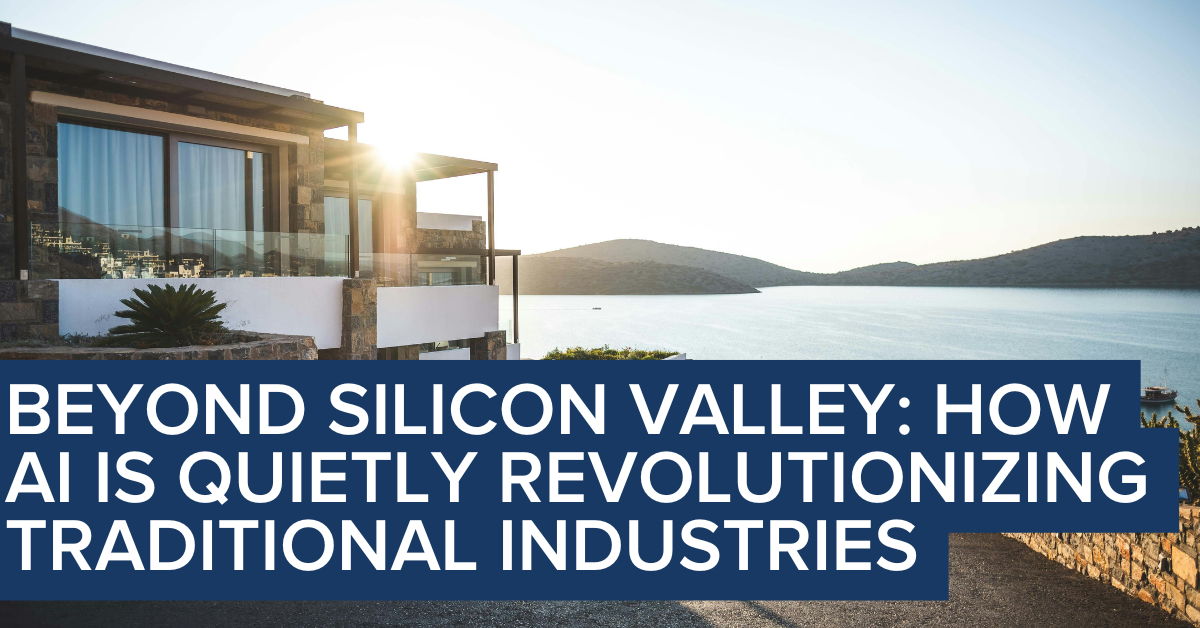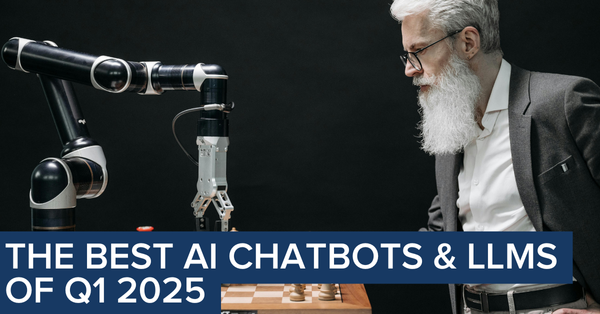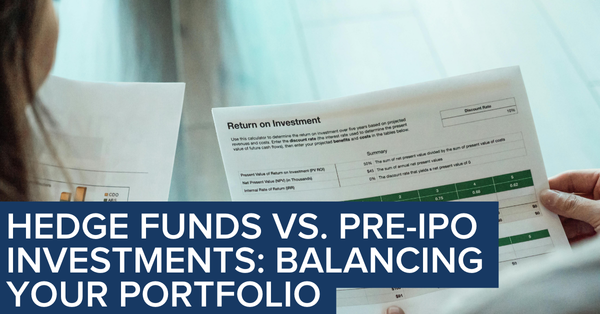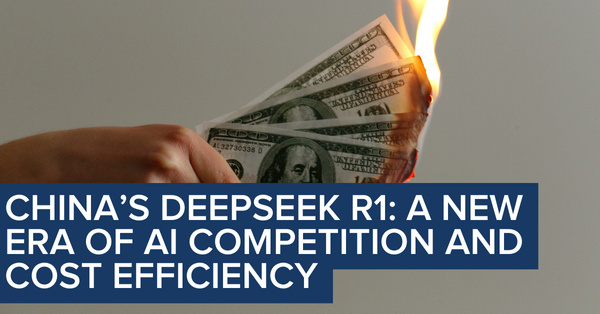How AI is Disrupting Real Estate, Law, Medicine & Hospitality

When people think about AI disruption, they usually picture software development and tech-first use cases. But some of the most significant transformations may occur in traditional industries that many consider dull or slow to change. These sectors have established practices and old business models, which create massive opportunities for efficiency gains and entirely new services.
Real Estate: From Listings to Intelligent Market Analysis
Real estate has traditionally relied on personal relationships and manual processes. Today, 75 percent of real estate brokerages in the U.S. already use AI technology, according to the National Association of Realtors.
For example, machine learning algorithms predict property values by analyzing thousands of data points including neighborhood trends, school districts, and crime statistics. AI enables virtual staging at a fraction of traditional costs. Computer vision technology provides instant property assessments from photos, while natural language processing speeds up contract review from weeks to days.
Leading AI-First Innovators:
Lofty real estate CRM with a built an AI assistant that qualifies leads, schedules showings, and nurtures prospects automatically. Their system predicts which leads are most likely to convert and prioritizes agent outreach accordingly, increasing conversion rates by up to 300%.
HouseCanary provides institutional real estate investors with AI-powered property analytics. Their models evaluate millions of properties simultaneously, predicting price movements and rental yields with greater accuracy than traditional appraisal methods. The platform processes everything from permit data to satellite imagery.
Skyline AI uses machine learning to identify undervalued commercial properties. Their algorithms analyze hundreds of data points per property and have consistently outperformed market benchmarks by identifying value-add opportunities that human analysts miss.
Law: Automating Research and Revolutionizing Discovery
Legal work that once took junior associates weeks now takes AI hours. Natural language processing reviews thousands of documents for relevance, identifies key contract clauses, and flags risks. Predictive analytics assesses case outcomes based on judge history and jurisdiction patterns. AI research platforms understand context and intent, delivering relevant case law instead of simple keyword matches.
Leading AI-First Innovators:
Harvey AI serves as an AI legal assistant trained specifically on legal texts. The platform drafts documents, conducts due diligence, and performs compliance analysis with attorney-level sophistication, freeing lawyers to focus on strategy and client counsel.
CoCounsel (formerly Casetext, now part of Thomson Reuters) serves as an AI legal assistant that handles sophisticated legal tasks. The platform performs document review, deposition preparation, contract analysis, and legal research in minutes rather than hours. CoCounsel understands complex legal questions and provides detailed answers with pinpoint citations, dramatically reducing the time lawyers spend on routine work.
Everlaw transforms litigation through AI-powered discovery. Their platform predicts document relevance, identifies privileged communications, and surfaces evidence patterns across millions of documents, reducing discovery costs by up to 70%.
Medicine: Enhancing Diagnosis and Personalizing Treatment
Cutting-edge AI can detect cancers in medical imaging with accuracy that often exceeds experienced radiologists. These systems identify subtle patterns humans miss. AI analyzes patient histories, genetic data, and treatment outcomes to recommend personalized treatment plans. Administrative AI handles insurance verification, scheduling, and documentation, letting providers focus on patients.
Leading AI-First Innovators:
Tempus built one of the world's largest clinical and molecular data libraries. Their AI identifies optimal cancer treatment pathways by analyzing genomic sequencing alongside clinical notes and treatment histories for personalized medicine approaches.
Viz.ai operates an AI-powered care coordination platform with over 50 FDA-cleared algorithms that analyze medical imaging including CT scans, EKGs, and echocardiograms. The platform autodetects suspected diseases across multiple therapeutic areas in seconds, accelerating diagnosis and treatment decisions while coordinating care teams across hospitals.
OpenEvidence provides an AI-powered clinical decision support platform used by over 40% of U.S. physicians. The platform instantly synthesizes peer-reviewed medical research from sources like NEJM and JAMA to answer clinical questions at the point of care. Their DeepConsult AI agents analyze hundreds of studies in parallel, delivering evidence-based recommendations that would take human researchers months to produce.
Hospitality: Reimagining Guest Experience Through Intelligence
Hotels use AI to personalize guest experiences while optimizing operations. Revenue management systems adjust prices in real-time based on demand, competitor pricing, and local events. Chatbots handle reservations in multiple languages around the clock. Predictive maintenance prevents equipment failures before they affect guests. Recommendation engines suggest dining and activities based on guest preferences.
Leading AI-First Innovators:
Canary Technologies reimagined the hotel journey through contactless AI solutions. Their platform enables mobile check-in, digital keys, and intelligent upselling that adapts to guest preferences, increasing revenue while improving satisfaction.
Alice (Actabl) provides an operations platform connecting all hotel departments. Their predictive analytics anticipate guest needs, optimize staff scheduling, and automate routine tasks so staff can deliver better service.
Jurny operates AI-powered management for short-term rentals and boutique hotels. Their system handles dynamic pricing, guest communications, maintenance scheduling, and design recommendations based on preference data.
The Transformation Ahead
These four industries represent just the beginning. Industries with established practices and human-intensive processes offer enormous potential for AI transformation. Successful companies aren't just adding AI features to existing products. They're reimagining entire business processes and creating new service categories.
As AI becomes more accessible and industry models mature, adoption will likely accelerate. Winners will balance innovation with industry expertise, regulatory compliance, and the human touch these relationship-driven industries require.
The revolution in these "boring" industries may prove more transformative than changes in some tech sectors. AI may directly impact (and, hopefully, improve) how we buy homes, receive medical care, resolve disputes, and travel. For investors and entrepreneurs, the message is clear: the most significant opportunities may lie not in disrupting Silicon Valley, but in bringing its innovations to Main Street.
The information contained in this article is not investment advice; and does not constitute a recommendation to buy or sell any securities. The information within this article is meant for informational purposes only. Any statement in this document does not mean that the firm nor its employees agrees, endorses or approves any content of the document.
This article is only for knowledge sharing and does not constitute any investment advice. Anyone who makes an investment decision based on this article does so at their own risk. Any fund investment should be made through a formal confidential private placement memorandum and other fund documents. Potential investors should carefully read the risk factors in the private placement memorandum of securities issuance, and consult their own professional consultants if necessary, and receive advice on any investment, legal, tax or accounting issues. Past performance is not indicative of future performance, and the investment may potentially result in a loss of principal. The source and data of the material are considered to be reliable. However, there is no guarantee of its accuracy or completeness. The Company has no obligation to disclose or revise or modify this statement or any forward-looking statements as the circumstances change or as a result of subsequent events. Private equity funds are only suitable for specific qualified investors to subscribe. United States sales of the fund interests are exempt under Regulation D of the U.S. Securities Act of 1933, and are only applicable to potential investors who are eligible as "Qualified Investors" under Regulation D. Sales outside the United States are exempt under Regulation S of the U.S. Securities Act of 1933. Private equity funds are sold through Upmarket Securities LLC. Upmarket Securities LLC is a U.S. registered broker-dealer, and member of FINRA.
About UpMarket
UpMarket's mission is to unlock the private markets for individual investors.
We provide access to a range of asset classes and investment strategies that span private equity, hedge funds, crypto, real estate, and other alternative assets.
The problem
- A large barrier to entry due to high investment minimums
- Time-intensive because sourcing deals is a lot of work even if you’ve got a great network, and
- Costly because of investment-related diligence costs, paperwork, and legal fees
The solution
- Offering lower investment minimums
- Sourcing and conducting diligence on opportunities for investors, empowering them to pick and choose from pre-screened opportunities
- Making the investment process entirely digital, straightforward, and easy to manage from a single portal













